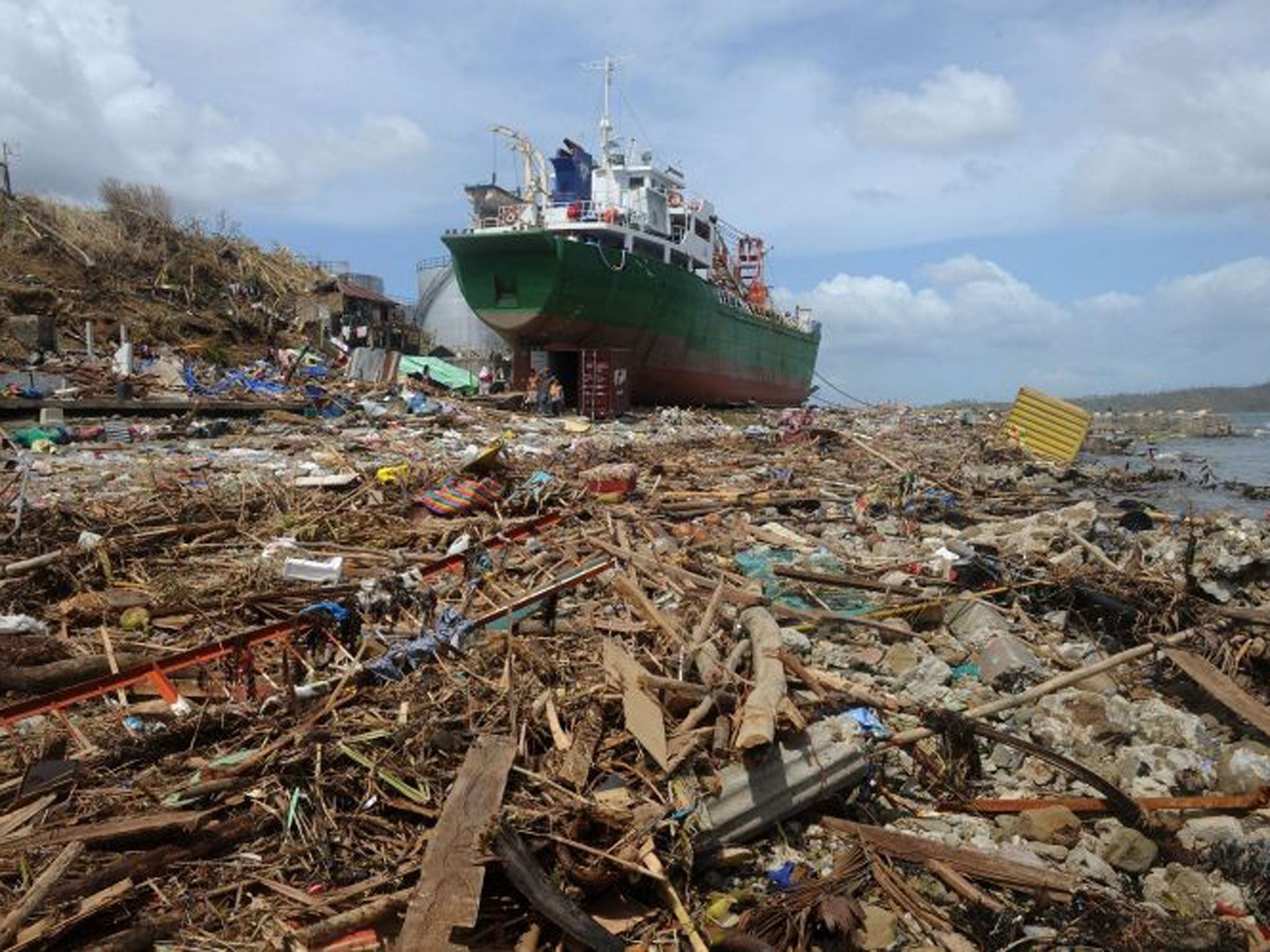Typhoon Haiyan: British expats and tourists join aid efforts
10,000 people are estimated to have been killed by super storm

British expats and tourists in typhoon-devastated Philippines have joined recovery and aid efforts in the wake of the super storm that has left thousands dead.
The help from Britons on the ground comes as the Government pledged £6 million in immediate aid.
About 10,000 people are estimated to have been killed after Typhoon Haiyan ravaged the Asian nation three days ago.
The islands Leyte, Samar and the northern part of Cebu copped the worst of the storm. About four million people had been affected, the country's national disaster agency said.
Sunderland man Tim Harding said he was one of many foreigners who were volunteering at a Manila Red Cross centre in the storm's aftermath.
Mr Harding said he had planned a holiday to the nation's capital with his wife, who was originally from the Philippines, but it had instead become a volunteer mission.
“And that's OK to be fair,” he told the Press Association from Manila today.
“It's good to see everyone getting on, doing a job where race, nationality, income level, nothing matters at all.
“There's only one priority here and that's to get together, get stuck in and do the greater good.”
Mr Harding said he would help wherever he could for the next few weeks and it was a mindset shared by other foreigners hailing from not only the UK, but elsewhere in Europe and the world.
He said there were mixed emotions in the recovery centre, with many locals also helping out to take their minds of the devastation.
“There's a lot of panic going on here,” he said.
“Although we just got some good news a few minutes ago that a three-year-old child had actually been rescued in the debris at a place in Tacloban city.
“There was a big cheer that went up.”
Mr Harding likened the mood to what would have been felt during the London Blitz during World War II.
“You've got people worried about their families in the harder-hit areas, but everyone is coming together and just helping out, you know?” he said.
Meanwhile, the UK Government is implementing a £6 million rapid response to the crisis.
International Development Secretary Justine Greening said NHS experts had been flown with shelter and water purification kits to hardest-hit Tacloban.
Corpses had reportedly been found hanging from trees and scattered on pavements in the seaside city. Many people were also buried in flattened buildings.
The minister said the British response was being coordinated by aid agencies, which were already on the ground.
But organisations are being hampered by widespread devastation. Emergency workers have been restricted by blocked roads and damaged airports as they raced to deliver tents, food and medicines to eastern Leyte Province.
“The first thing is to get the logistic routes open so we can start to get those life-saving supplies to people,” Ms Greening told ITV's Daybreak.
“We need then to work on the ground to get some semblance of order and start to put families back together.
“We've already got flights booked so we can get more supplies out and, of course, working hand in hand with Save the Children, so we can partner up with those key NGOs that can deliver on the ground.”
Filipino expats living in the UK are also banding together to help amid fears for loved ones caught up in the devastation back home.
Emma Bibal, director for Filipino charity Bahay Kubo Housing Association, said she and fellow expats had been trying to contact loved ones while they watch the “heartbreaking” developments unfold from afar.
Ms Bibal said although her family was safe, others in London's Filipino community, particularly with family in the hardest-hit areas, were yet to receive the same good news.
“It's very worrying,” she said.
“We've all seen the clips on the news, so we know just how bad it is.”
Ms Bibal said she would be meeting with other Filipino support groups tomorrow to work out how they could best coordinate fundraising efforts.
The Disaster Emergency Committee (DEC), a co-operative of more than a dozen leading UK charities, is expected to launch an appeal to help alleviate the humanitarian crisis in the Philippines.
The group of 14 NGOs, which includes the British Red Cross and Oxfam, has previously raised upwards of £1.1 billion in response to massive human tragedies.
DEC was able to encourage donations of more than £72 million following the 2010 floods in Pakistan, £107 million for the earthquake in Haiti and a record-breaking £392 million after a tsunami devastated much of south east Asia in 2004.
PA
Join our commenting forum
Join thought-provoking conversations, follow other Independent readers and see their replies
Comments
Bookmark popover
Removed from bookmarks